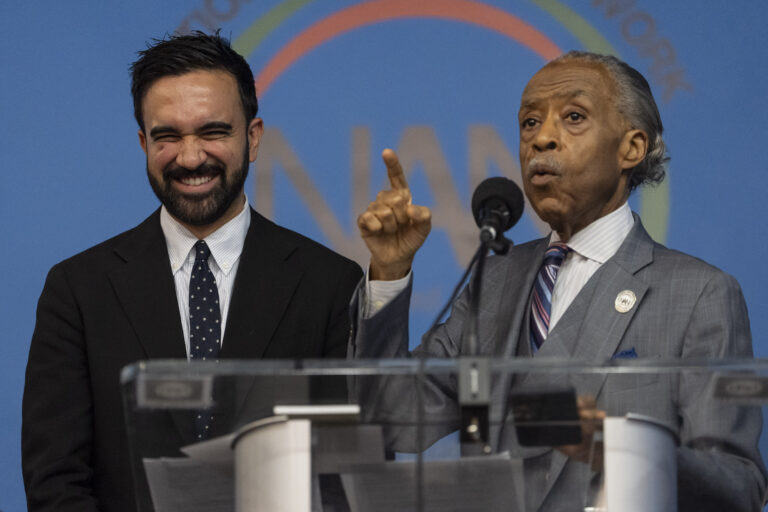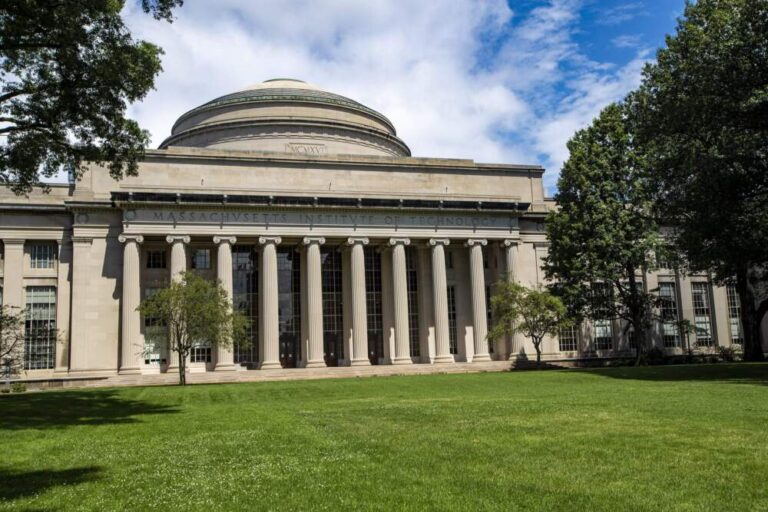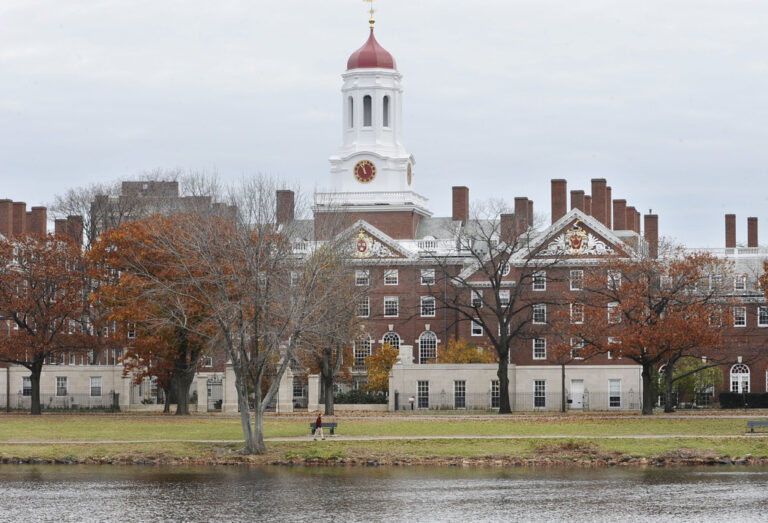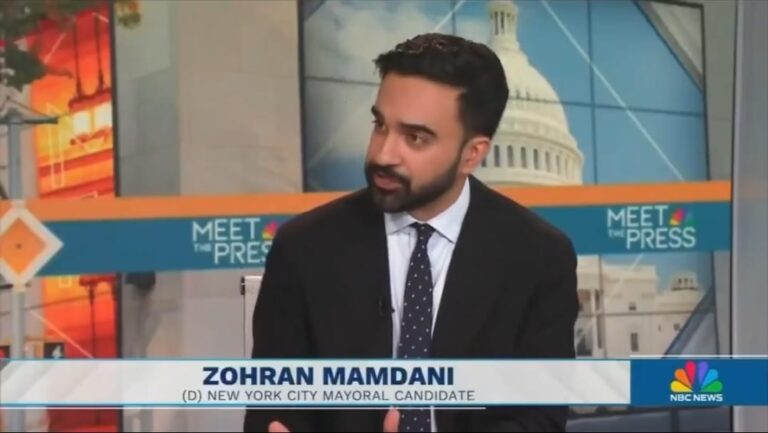 The Jewish social philosophy class at Yeshiva University was supposed to focus on repentance, but there seemed to be too much to atone for. In the eyes of the students, Bernard L. Madoff had deceived scores of people, turned billions of dollars into dust and ruined many lives. So instead, the graduate seminar of 15 began by debating whether Mr. Madoff’s actions were sins, and whether it mattered that he was Jewish.
The Jewish social philosophy class at Yeshiva University was supposed to focus on repentance, but there seemed to be too much to atone for. In the eyes of the students, Bernard L. Madoff had deceived scores of people, turned billions of dollars into dust and ruined many lives. So instead, the graduate seminar of 15 began by debating whether Mr. Madoff’s actions were sins, and whether it mattered that he was Jewish.
One by one, the students in Rabbi Norman Linzer’s class last week wrestled with the headlines and their emotions. Some said Mr. Madoff’s religious affiliation was irrelevant; others worried that his Judaism might tarnish their own, that outside eyes would not be able to see past his faith.
Since Mr. Madoff was charged by federal prosecutors with orchestrating a $50 billion fraud, each day has brought new pain to the nation’s best-known Jewish institution of higher education — word that another familiar charity tied to Jewish causes had been thrust into financial uncertainty, another university family’s savings depleted.
Yeshiva, a campus of about 7,000 students in Upper Manhattan, is grappling with a sense of personal betrayal that extends beyond the $110 million it says it lost in investments with Mr. Madoff, who had been on the board of trustees since 1996. There is resentment; fear of the revival of ugly, old stereotypes; and, after the fall of a favorite son, uncertainty about how Jewish institutions like theirs should choose role models.
At a school that aims to inculcate ethics and interpersonal morals in its students along with academics — to train future doctors, lawyers, educators and financiers to not just be good at their jobs but to perform them in accordance with traditional Jewish ideals — the story of Mr. Madoff has turned into the consummate teaching moment.
Mr. Madoff, who is under 24-hour house arrest, has told prosecutors that his firm “paid investors with money that wasn’t there,” a Ponzi scheme that may have cost investors as much as $50 billion.
He has resigned from the Yeshiva board, and his name has been wiped clean from the university Web site. But in classrooms, coffee shops and late-night e-mail messages, his story is inevitably the hot topic.
In Intermediate Accounting I, undergraduates analyzed how he seemingly tap-danced around the Securities and Exchange Commission. In Rabbi Benjamin Blech’s philosophy of Jewish law course, students pondered whether Jewish values had been distorted to reward material success.
“This overrides everything else,” said Rabbi Blech, who has taught at Yeshiva for 42 years. “It is an opportunity to convey to students that ritual alone is not the sole determinant of our Judaism, that it must be combined with humanity, with ethical behavior, with proper values, and most important of all, with regard to our relationship with other human beings.”
Yeshiva is home to a seminary that ordains more modern Orthodox rabbis than any other. The school, which was founded in 1886, models itself on the Hebrew phrase Torah Umadda, which articulates the interweaving of secular and Jewish studies. Students do not have to be Jewish, but undergraduates do have to spend time studying religious texts.
For Mr. Madoff, Yeshiva was one of numerous Jewish executives and organizations that he seemed intent on helping and now has hurt, including charities set up by Elie Wiesel, the Hollywood director Steven Spielberg and the publisher Mortimer B. Zuckerman.
To Yeshiva, Mr. Madoff was also a generous philanthropist who regularly attended university galas and its annual Hanukkah dinner, and in 2001 made a major donation — university officials would not say how much — to its Sy Syms School of Business, where he had become chairman of the board the year before (he has resigned from that position, too).
The university awarded Mr. Madoff an honorary degree in 2001 and its trustees elected him treasurer the next year.
That was also the year he was joined on the board by a close acquaintance, J. Ezra Merkin, who became chairman of the investment committee. The university invested heavily in Mr. Merkin’s fund, Ascot Partners, which in turn entrusted the money to Mr. Madoff, leaving the university with losses estimated at about 8 percent of the school’s $1.2 billion endowment. (Mr. Merkin also resigned from Yeshiva when the scandal broke.)
Yeshiva’s president, Richard M. Joel, declined to be interviewed for this story, as did the dean of the business school and members of the board of trustees. In a letter distributed last Tuesday intended to quell concerns about financial aid and research funding, Mr. Joel announced that the school had hired lawyers and investment consultants to examine its conflict-of-interest policies and governance structures.
“We all should use these times to reflect on our blessings but also to reflect on our responsibilities,” Mr. Joel wrote. “The times are appropriate for us to focus on our core values, to practice and refine them and to share them with the world.”
Some on campus said in interviews last week that Mr. Madoff’s arrest showed those values were in need of realignment. Several students said they felt dual, even competing, pressures to achieve material success as well as religious devotion, and worried that some might be prone to follow immoral paths if the rewards were alluring.
“There’s no such thing as wanting to be a professor in this community,” said Josh Harrison, 23, a graduate student pursuing Jewish philosophy. “All my friends who are intelligent and interesting and asking questions are pre-med and beginning law school.”
He added, “This will force a whole reassessment.”
Rabbi Blech, who teaches the philosophy of law course, said he, too, worried that community expectations had steered students away from public-service professions like teaching and toward more lucrative jobs.
“In elevating to a level of demiworship people with big bucks, we have been destroying the values of our future generation,” he said. “We need a total rethinking of who the heroes are, who the role models are, who we should be honoring.”
In a coffee shop near campus last week, Edward Farbenblum, a third-year law student, looked at a list of charities whose survival was threatened because so much of their money was invested with Mr. Madoff.
“What does it say when this fraud is so intertwined with the Jewish community?” asked Mr. Farbenblum, 26, who is Orthodox and attended Yeshiva as an undergraduate. “One of our religious imperatives is to be morally upstanding, to be the exemplar of what it is to be a moral citizen, and this is a very public case of a failure of that religious ideal.”
Lynn H. Levy, a social work instructor, had her philosophy class dissect the Madoff case through the lens of trust last week. Questions flew through the room: If we cannot trust business, why trust government? Will people be more skeptical of the Jewish community? How do we rebuild confidence in us?
“It is really important for students to look at and talk about and contextualize this,” Ms. Levy said. “They see themselves as potential future agents of change, and we have to train them to reflect the morals of society in the most positive ways.”
As it does each day, the Yeshiva community has turned to religion for strength, and to help shepherd it through a crisis.
Rabbi Shalom Carmy, chairman of the Bible and Jewish Philosophy Department, flipped through Genesis the other day looking for a passage, a sliver of spiritual truth, to guide students in a time of introspection. He stopped on the story of Jacob and his willingness to risk his life to ensure the integrity of his earnings.
“The righteous guard their money more than their body,” he said in explaining the lesson he extracted. “If you make money honestly and if you’re holding it in a trust for people, you have to be very careful.”
Rabbi Blech, for his part, turned to the Ten Commandments, noting that some focus on a person’s relationship with God, others on relationships with fellow human beings. He said that “both tablets are equally important.”
“Just because you eat kosher and observe the Sabbath does not make you good,” he explained. “If you cheat and steal, you cannot claim you are a good Jew.”
(LINK to NY Times Article)











21 Responses
Madoff was not known to keep Shabbos & Mitzvos.
Megalgilim zchus al yidai chaiv… It’s time for YU to drop the “Yeshiva” out of it’s name. It tarnishes the name of true Yeshivos.
ironic,
didnt your mother ever teach you if you have nothing nice to say , to keep it to yourself.
are you to tell me that all the yeshivos ( to long to name) that have been accused of abuse, not paying the teachers on time, and the list goes on , should also drop the word yeshiva?
I have people who I work with who are not Frum, some are conservative and are active in their shul and some are reform and go to shul once a year. They all come to greet me this morning(before I even take my coat off) with the New York Times that says at the end of the article about Madoff ““Just because you eat kosher and observe the Sabbath does not make you good,”.“If you cheat and steal, you cannot claim you are a good Jew.”
Now this is cake to the non-frum to throw at me when I walk in to work this morning……….
It’s a little like the so called frum nuts who want to light a big Menorah for the public to see even if they have to go to court to fight….
Ironic. Hmm, that’s a good name for someone who thinks they’re holier then thou.
They are debating whether Mr Madoff’s actions were sins?! (Para. #1)
I guess there are alaways two sides to every story.
Hashem yerachem.
I don’t see what the big chiddush is in this whole story? The people I see a plenty of corruption, open disrespect for the rules, laws, government in my Jewish community.
I was sitting by the table of a very charismatic Rav and someone told this story (names changed): “.. so I tell Mikey, why are you making donation with cash? Make it with a check from your business, then you have a good record for tax deduction. So he answered me ‘deductions? taxes? I don’t pay taxes. Never did.'”
Response was chilling: Nothing but some chuckles and laughs.
Madoff-Schmadoff – look in the mirror Yeshiva World!
The NYTimes is correct (for just once) in stating that “just eating kosher and keeping Shabbos does not make you good”. And anyone who thinks otherwise is clearly not frum. As R’Blech stated in the article, there are 2 luchos.
If any of the readership here has a problem with that, then we have problems far deeper then Madoff.
It isn’t sufficient to just have Derech Eretz, and it also isn’t sufficient to keep kosher and Shabbos. We need to do both to the best of our abilities. That is what being “a light unto the nations” means.
#4 Baruck – I’m not sure what the problem is. You can simply confirm that the article is right. You too agree that kosher and Shabbos are not what Hashem has intended for us – He wants us to become better people. He wants us to keep Kosher and Shabbos, and all the other Mitzvos because that will make us better people – but it’s a package deal. If you if keep Kosher and Shabbos but don’t keep Choshen Mishpat, or any other part of the Torah, including Tikkun HaMiddos, you’re not following His prescription and there’s no guarentee that you’ll be what your co-workers would call a good person.
1. Don’t complain. Twenty years ago JTS (an apikores seminary) had a chair in business ethics named after someone who ended up in prison for business fruad. At least YU hadn’t names its business school after him.
2. It’s unlikely it started out as a “Ponzi” scheme, but probably evolved into one (that is the typical pattern). We would like to think a frum person would have swallowed his losses and resigned himself to a less opulent lifestyle and lowered prestige.
3. We should be happy he wasn’t frum, since many of our institutions might have wanted to invest with him (as if they had endowment money).
To go further on what Moe said, I heard a shiur titled “Is Our Money Bug-Free?” by HaRav Zev Cohen from Chicago, where he said (paraphrase)…we are amazing in Orach Chaim, Yoreh Deah and Even Ezra. It’s time we focus on Choshen Mishpat… It’s Kedai to listen to that shiur for the content. Besides, if you never heard HaRav Zev Cohen, he is very lively and gets you involved.
Why is so dificult for religous and non-religion peoples to understnand? There is not the relevance for keeping kosher and eating shabbos on basis of ethical behaving because moral is counted along with for the ending such as with the Madoff.
For all of you wonderful but weak-hearted individuals, Gedolim of today and yesteryear have already echoed this message PUBLICLY. Enough is enough – Yes other people do aveiros and even big ones – no doubt, but to label a University that INVITES all sorts of chilulai hashem to it’s campus with the title Yeshiva is inconceivable!
It’s time to step-up and turn on the heat!
13-
Please explain….
English please….
#10 Moe What they are really saying is to justify their way of behavior. It’s like they are saying “you see I don’t eat kosher and keep Shabbos and I’m okay therfore, all this is silly”…
“Students do not have to be Jewish …”
An institution that allows non-Jews to be students and calls itself “Yeshiva?” It’s downright insulting! I think I’ll vote with #2, ironic.
to # 21
ur second paragraph is halachically wrong.
ask rabbi Bleich or any competent rav.
For the sake of the record I have plenty of close friends from the YU. Some even agree with my notion. To all of you out there who don’t; keep in mind that klal Yisroel suffers throughout the generations because the masses did not stand-up against the chet haaigil sinners. The meforshim say that Giloi Arayus was the grounds for the Chet Haaigil and if we sit back and remain silent while a “Yeshiva” allows….. on its campus, this will inevitably make us accountable as well.
To # 20 and other commenter’s try to get what I’m saying! I am not criticizing a community, as I mentioned; Lo Alainu we all do aveiros – no doubt – ain tsadik ba’arets asher yaase tov vilo yechta and Lo Alainu even big ones – what I’m advocating here is that to title such a University that does ….with the name “yeshiva” is a downright terrible chutzpah, it tarnishes the name of other GOOD yeshivas and most importantly IT IS A COLOSSAL CHILUL HASHEM.
Title it whatever you want but keep the name Yeshiva disassociated and out of it!
Ironic
Why is my yeshiva not a “real yeshiva”? Is it because the Beis Medrash is full morning noon and night with learning? Or is it because when the boys leave this Yeshiva they can suppport themselves, their families and many Tzedokos and not ask for handouts from friends or the government (a HUGE chillul hashem)? Before you disparage a place maybe you should understand what really goes on there. I guess the achdus described on this site only applies to certain Jews. The language used against other Yidden has made me realized that I should no longer financially support (from my YU education) your institutions that preach this behavior. You certaintly would not help mine.
14, when I see all those gedolim mentioned (as they were on another thread) I can’t help but think that I would take the YU bashing in their name much more seriously from someone who wouldn’t batul time on the internet. Got to wonder what Rav Aharon, Rav Bloch, et al zt”l would have said on that score.
For those who consider it a Mitzvah to hate YU:
How often does one have to fulfill this Mitzvah?
a) Once a day
b) Twice a day like Shema
c) Three times a day like Shemonah Esrei
d) Once a year like we require everyone to hear about Amalek only once a year?
Are both men and women obligated with this Mitzvah?
At which age do we start teaching our children to fulfill this Mitzvah?
Does one need to wash his or her hands before doing this Mitzvah?
Does one need to express this hate verbally or can he just listen and nod agreement?
Does the obligation apply to those in Eretz Yisroel or just to those in USA?
For these and other questions we need a published sefer with at least 10 haskamahs in the front.